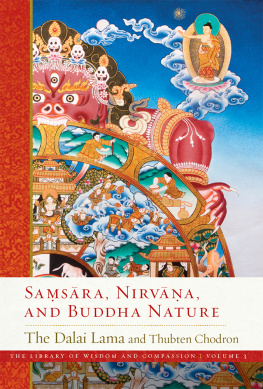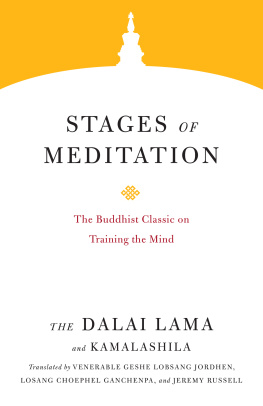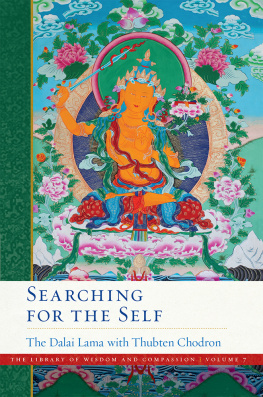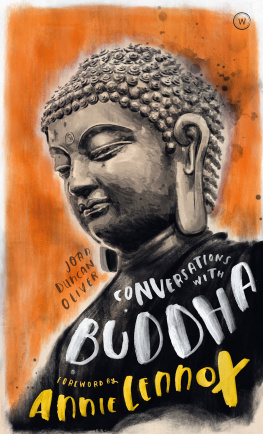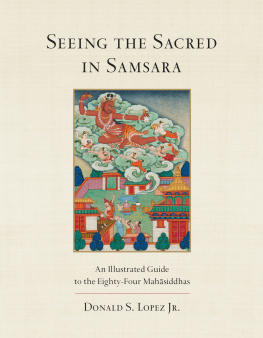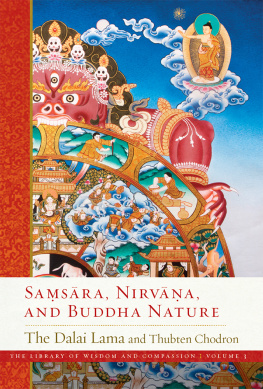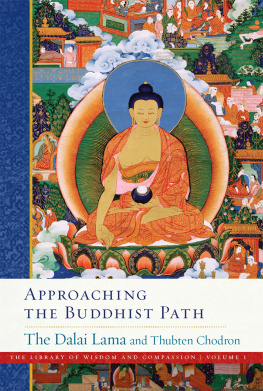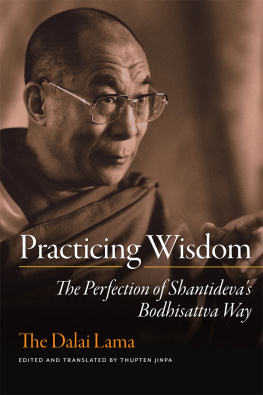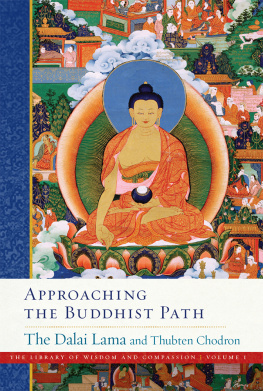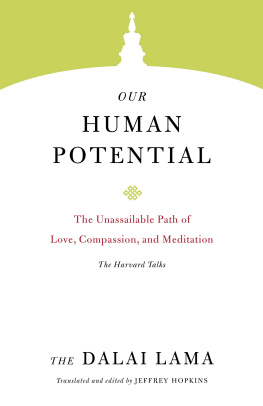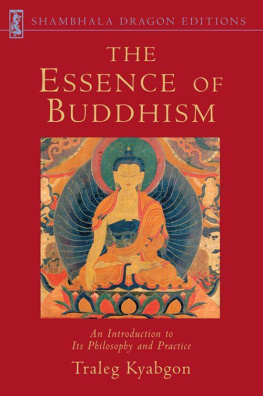Sasra, Nirva, and Buddha Nature is the third volume in the series of books coauthored by Venerable Thubten Chodron and His Holiness the Dalai Lama. This has proven to be a remarkable partnership, producing lucid, accessible articulations of Buddhadharma and demonstrating the relevance of philosophy to practice. The present volume ably advances the project begun in the first two volumes and expands its scope enormously. His Holiness and Ven. Thubten Chodron together set out a comprehensive vision of the nature of sasra and nirva, of the Buddhist understanding of the nature of mind, and of the path to liberation grounded in the realization of our buddha nature. The philosophical analysis is precise and comprehensive. The application to personal practice is insightful, direct, and easy to apply. This is a wonderful example of how Buddhist philosophy and Buddhist practice can be integrated.
Jay L. Garfield, Doris Silbert Professor in the Humanities, Smith College and Harvard Divinity School
This third volume in the Wisdom Publications series The Library of Wisdom and Compassion presents an in-depth examination of the idea of buddha nature and explores and illustrates how the mind itself serves as the basis for both our suffering and our liberation. Helpful reflections throughout the text guide our journey. These are truly textbooks tailored for our times.
Jan Willis, author of Dreaming Me: Black, Baptist, and Buddhist One Womans Spiritual Journey
This third volume of the marvelous Library of Wisdom and Compassion series provides an exploration of sasra the painful cycle of unenlightened existence as well as its causes and how to attain freedom from it. The final sections contain a beautiful elucidation of the nature of the mind and its potential buddha nature signifying that every living being has the ability not only to be free of suffering and its causes but also to attain full awakening. The material in this volume is invaluable for those who sincerely wish to understand the Buddhist path and begin following it.
THE LIBRARY OF WISDOM AND COMPASSION
The Library of Wisdom and Compassion is a special multivolume series in which His Holiness the Dalai Lama shares the Buddhas teachings on the complete path to full awakening that he himself has practiced his entire life. The topics are arranged especially for people not born in Buddhist cultures and are peppered with the Dalai Lamas unique outlook. Assisted by his long-term disciple, the American nun Thubten Chodron, the Dalai Lama sets the context for practicing the Buddhas teachings in modern times and then unveils the path of wisdom and compassion that leads to a meaningful life, a sense of personal fulfillment, and full awakening. This series is an important bridge from introductory to profound topics for those seeking an in-depth explanation from a contemporary perspective.
Volumes:
1. Approaching the Buddhist Path
2. The Foundation of Buddhist Practice
3. Sasra, Nirva, and Buddha Nature
More volumes to come!

Wisdom Publications
199 Elm Street
Somerville, MA 02144 USA
wisdompubs.org
2018 Dalai Lama and Thubten Chodron
All rights reserved.
No part of this book may be reproduced in any form or by any means, electronic or mechanical, including photography, recording, or by any information storage and retrieval system or technologies now known or later developed, without permission in writing from the publisher.
Library of Congress Cataloging-in-Publication Data
Names: Bstan-dzin-rgya-mtsho, Dalai Lama XIV, 1935 author. | Thubten Chodron, 1950 author.
Title: Samsara, Nirvana, and Buddha Nature / Bhiksu Tenzin Gyatso, the Fourteenth Dalai Lama and Bhiksuni Thubten Chodron.
Description: Somerville, MA: Wisdom Publications, 2018. | Series: The library of wisdom and compassion; volume 3 | Includes bibliographical references and index. |
Identifiers: LCCN 2018010703 (print) | LCCN 2018028973 (ebook) | ISBN 9781614295556 (ebook) | ISBN 9781614295365 (hardcover: alk. paper)
Subjects: LCSH: Buddhism Psychology. | Life Religious aspects Buddhism. | Happiness Religious aspects Buddhism. | Nirvana. | Buddhism Doctrines.
Classification: LCC BQ4570.P76 (ebook) | LCC BQ4570.P76 B78 2018 (print) | DDC 294.3/420423 dc23
LC record available at https://lccn.loc.gov/2018010703
ISBN 9781614295365 ebook ISBN 9781614295556
22 21 20 19 18 5 4 3 2 1
Cover and interior design by Gopa & Ted2, Inc.
Photo credits: pp. vi, 276, Olivier Adam; p. xii, Jamyang Zangpo; p. xx, Traci Thrasher; p. 4, Religious Images/Universal Images Group/Getty Images; p. 38, kingxhuang / stock.adobe.com; p. 142, Stocksnapper/stock.adobe.com; p. 192, Stephen Ching; pp. 216, 230, Thubten Jigme; p. 252, Libby Kamrowski; p. 290, Dmitry Rukhlenko; p. 318, Mike Novak. All photos reprinted with permission.
PUBLISHERS ACKNOWLEDGMENT
The publisher gratefully acknowledges the generous help of the Hershey Family Foundation in sponsoring the production of this book.
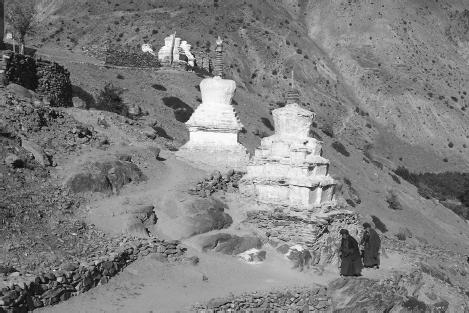

Preface
T HE FIRST VOLUME of The Library of Wisdom and Compassion , Approaching the Buddhist Path , explored the Buddhist view of life, mind, and emotions. It provided historical background, introduced us to a systematic approach to the spiritual path, and discussed how Buddhist ideas could pertain to contemporary issues. The second volume, The Foundation of Buddhist Practice , discussed gaining nondeceptive knowledge, rebirth, spiritual mentors, and how to structure a meditation session. From there we considered the essence of a meaningful life and karma the ethical dimension of our actions. If we use our lives wisely and make good ethical decisions, our deaths will be free from regret and fear. Having fortunate rebirths in the future, we will have conducive circumstances to continue our spiritual practice.
A fortunate rebirth is definitely desirable, but it is still within cyclic existence ( sasra ), bound by ignorance, afflictions, and polluted karma. The unsatisfactory circumstances ( dukha ) of sasra are immense and, knowing that, we seek to free ourselves from it. To do so, we must know its causes and whether those causes can be ceased. When convinced the causes can be stopped, we learn the path to eradicate them. Knowledge of guideposts along the way is helpful, as is continuously keeping our goal the genuine peace and freedom of nirva for all living beings in mind. Self-confidence and joyous effort are good friends on our journey to buddhahood.
While ostensibly this volume is about sasra and nirva, it is actually about our minds our minds that are sometimes tumultuous and at other times peaceful. Although our minds are always with us and are the basis of designation of the person, I, our minds remain a mystery to us. How can it be both the basis for the extreme dukha of sasra and the incredible bliss and fulfillment of nirva?
Knowledge of the two types of buddha nature answers this question. One is the naturally abiding buddha nature the emptiness of inherent existence of our minds which has always been and will always be the ultimate nature of our minds. The second is the transforming buddha nature the mind whose continuity goes on to awakening but at present is not yet freed from defilement. This mind serves as the basis for the emptiness that is the naturally abiding buddha nature. These two types of buddha nature are already present within us. The afflictions are not embedded in our minds; our minds are obscured by defilements but are not the nature of defilement. These obscuring factors can be forever eliminated by applying suitable antidotes.

